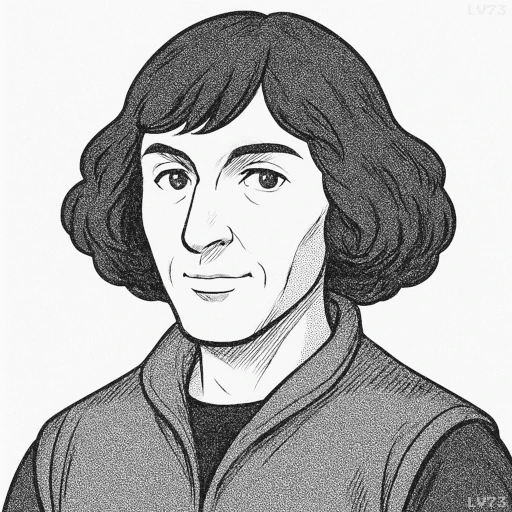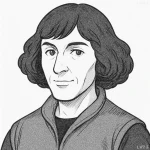“I can easily conceive, most Holy Father, that as soon as some people learn that in this book which I have written concerning the revolutions of the heavenly bodies, I ascribe certain motions to the Earth, they will cry out at once that I and my theory should be rejected.”

- February 19, 1473 – May 24, 1543
- Polish
- Astronomer, Mathematician, Founder of the Heliocentric Theory
table of contents
Quote
“I can easily conceive, most Holy Father, that as soon as some people learn that in this book which I have written concerning the revolutions of the heavenly bodies, I ascribe certain motions to the Earth, they will cry out at once that I and my theory should be rejected.”
Explanation
Copernicus anticipates the controversy his heliocentric theory will provoke, particularly among those deeply committed to the geocentric worldview upheld by tradition and religious authority. Addressing the “most Holy Father”—a reference to the Pope—he expresses awareness that his claim of Earth’s motion will be met with immediate opposition, not because of its scientific merit, but due to its challenge to long-standing beliefs. His tone conveys both deference and courage: he knows the storm he is walking into, but proceeds nonetheless.
This statement reveals the climate of intellectual resistance in which Copernicus worked, where theology, philosophy, and science were deeply intertwined. By ascribing motion to the Earth, he not only questioned scientific assumptions but also risked theological condemnation, as Scripture had been interpreted to support Earth’s immobility. His awareness of this resistance underscores the boldness and calculated risk of publishing his work, despite fears of rejection or misinterpretation.
In today’s context, this quote continues to resonate with those who challenge dominant paradigms, whether in science, politics, or culture. Innovators and truth-seekers often face criticism not because they are wrong, but because their ideas disrupt comfort or authority. Copernicus reminds us that anticipating backlash is part of intellectual bravery, and that many of the greatest advances come not from safe consensus, but from the willingness to defy it.
Would you like to share your impressions or related stories about this quote in the comments section?

